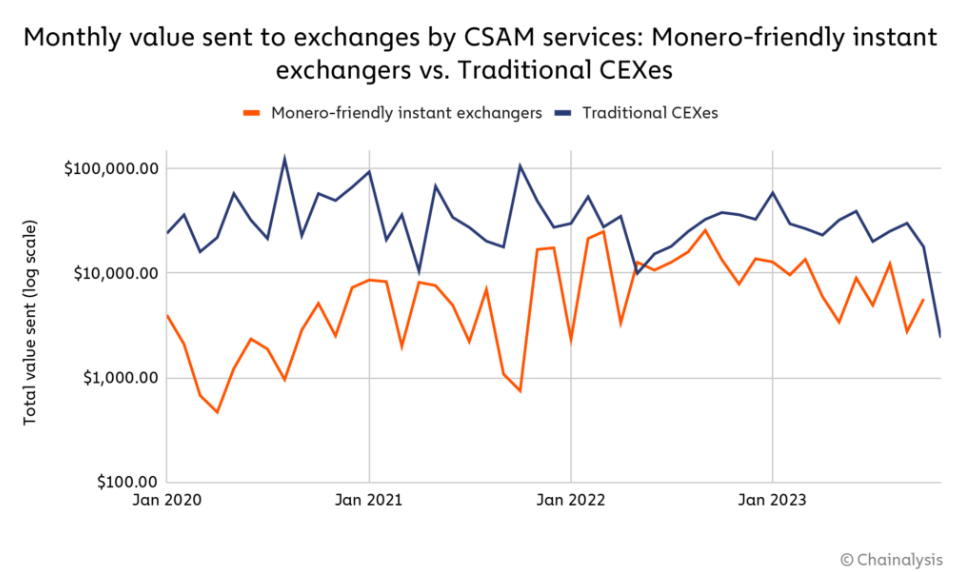In response to the alarming proliferation of child sexual abuse material (CSAM) facilitated through the use of cryptocurrencies, Senators Elizabeth Warren and Bill Cassidy have embarked on a determined campaign to address this pressing issue within the United States. The senators are leading a concerted effort aimed at cracking down on the insidious practice of utilizing cryptocurrencies as a means to facilitate the buying and selling of CSAM, a reprehensible crime that inflicts immeasurable harm on vulnerable children.
At the forefront of their initiative is a proactive approach that involves engaging federal agencies to assess their technical capabilities and readiness to combat the use of cryptocurrencies in facilitating transactions related to child abuse. By directing inquiries to these agencies, Senators Warren and Cassidy seek to gain insights into the existing infrastructure, tools, and protocols in place to detect and disrupt illicit crypto payments associated with CSAM.
This collaborative effort underscores the gravity of the situation and the urgent need for comprehensive measures to stem the tide of online child exploitation. Cryptocurrencies, with their inherent features of anonymity and decentralization, have unfortunately emerged as a preferred medium for perpetrators to engage in illicit transactions, including the dissemination and sale of CSAM. As such, addressing this issue requires a multifaceted approach that combines legislative action, law enforcement efforts, and technological innovation.
By proactively engaging federal agencies and advocating for enhanced technical capabilities to combat crypto-enabled CSAM transactions, Senators Warren and Cassidy demonstrate a commitment to safeguarding the well-being of children and combating online exploitation. Their efforts reflect a recognition of the evolving nature of digital crimes and the imperative to adapt regulatory frameworks and enforcement strategies accordingly.
Senators urge the DOJ and DHS to combat cryptocurrency use in CSAM transactions.
US Senators Elizabeth Warren and Bill Cassidy are calling on the Department of Justice and the Department of Homeland Security to step up their efforts in combatting the use of cryptocurrency for payments involved in distributing child sexual abuse material (CSAM) online. They point to a perceived escalation in this problem.
In a letter directed to Attorney General Merrick Garland and Secretary of Homeland Security Alejandro Mayorkas, the senators express their concerns regarding the anonymity provided by cryptocurrency transactions. They argue that such anonymity enables those engaged in CSAM trading to evade law enforcement.
Citing data from the US Treasury’s Financial Crime Enforcement Network, Chainalysis, and the Internet Watch Foundation, the letter underscores a notable increase in the utilization of cryptocurrency in illicit CSAM transactions. Financial institutions have identified 1,800 Bitcoin wallets suspected of being involved in such transactions between 2020 and 2022. However, Chainalysis observed a decrease in the size of the crypto-based CSAM market in 2023.

The senators brought attention to the tactics employed by individuals engaged in trading child sexual abuse material (CSAM) to conceal their illicit activities. These methods include the use of crypto mixing services and ATMs to obscure the source of funds. According to a study by Chainalysis, sellers of such materials are resorting to “mixers” and “privacy coins” like Monero to launder profits and evade detection by law enforcement. Moreover, there has been a notable surge in activity among instant exchangers facilitating Monero conversions in recent years.
Warren and Cassidy underscored the gravity of the situation, highlighting cryptocurrency’s widespread use as the preferred payment method among perpetrators of child sexual abuse and exploitation.
In an effort to spur action, the senators called upon the DOJ and DHS to share their research findings regarding the extent of cryptocurrency’s involvement in the CSAM issue. They set a deadline of May 10 for the agencies to provide a response.
Warren’s Position on Cryptocurrency Regulation and the Recent KuCoin Indictment by the DOJ
Elizabeth Warren’s outspoken critiques of cryptocurrency, particularly concerning its potential involvement in illicit activities, have elicited mixed reactions from members of the crypto community.
In July 2023, Warren introduced proposed anti-money laundering legislation, aiming to address concerns about the criminal misuse of cryptocurrencies. However, her initiative faced opposition from crypto advocacy groups, who contended that it could adversely impact US startups and investors. Despite encountering resistance, Warren has consistently reiterated her conviction that stringent regulations are imperative to combatting criminal activities involving cryptocurrencies, including cases related to child sexual abuse material (CSAM).
The Department of Justice (DOJ)’s recent advancements in technical capabilities for scrutinizing cryptocurrency transactions have yielded tangible outcomes. This was evidenced by the indictment of cryptocurrency exchange KuCoin and two of its founders.
On March 26, the DOJ brought charges against KuCoin and its founders, accusing them of operating an unlicensed money-transmitting business and violating the Bank Secrecy Act. According to the indictment, KuCoin allegedly facilitated the laundering of over $5 billion in suspicious and criminal funds.
The DOJ underscored KuCoin’s failure to implement fundamental anti-money laundering measures, which allowed the exchange to operate clandestinely within financial markets and serve as a sanctuary for illicit money laundering activities.
READ MORE ABOUT: U.S. Senators Elizabeth Warren and Charles Grassley are seeking clarification from CFTC Chair Rostin Benham about his ties to Sam Bankman-Fried.



